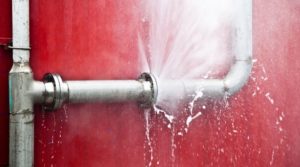DIY Tip: How To Handle Plumbing Emergencies
 Plumbing is a taxing task – but knowing the basics play a crucial role. While it may sound simple to the majority of individuals, they shouldn’t be taken for granted. Being able to know what to do with your plumbing, especially during emergency situations, can help you during those times that you need it most.
Plumbing is a taxing task – but knowing the basics play a crucial role. While it may sound simple to the majority of individuals, they shouldn’t be taken for granted. Being able to know what to do with your plumbing, especially during emergency situations, can help you during those times that you need it most.
First things first – when that emergency situation comes, you have to make sure that the area is clean and washed thoroughly. This is an important part of the process and shouldn’t be skipped because this helps you get rid of excess debris and dirt to help you flush the pipes out. By doing so, it helps you prevent from going back to get the debris that may have lodged in your plumbing system.
The next step would be to turn off the water source. If you have a damaged pipe, it is crucial that you immediately turn off the source as this helps prevent further damage. It is important not to skip this part.
As soon as the water source has been turned off, the next step would be carefully inspecting the pipes for leaks. This might be tricky, but as soon as you find leaks, if any, addressing the problem becomes easy. Doing this step can help you prevent other problems that may arise in the future. A small leak may turn into a huge hole if not taken care of immediately, so even if this isn’t the main problem, getting this fixed ASAP is important.
The above mentioned are just some of the basic things that you need to do to get started. By understanding the different types of plumbing steps and techniques, you will be able to prevent other problems such as flooding, fires, and damaged property during emergency situations. You don’t want your floors to get water damage, or your appliances short-circuiting because of the flooding situation, right?
Having a pump can help you during emergency situations. If you don’t have one yet, this might be the right type to invest in one. The pump will help you with the removal of excess water. Just get rid of the water and make sure that you immediately contact a professional plumber to help you with your plumbing concerns.
Contact a Professional Plumber Near You
While we’re talking about basic plumbing steps, it is still crucial that you find someone trained for the job to help you with these concerns. Understanding some basic plumbing steps can help you avoid paying for costly repairs.
Basic plumbing is also important during emergency situations, especially during a power outage. There will be some situations where the electricity is off and you have to deal with your plumbing problems, and getting in contact with a professional may take a little longer than expected.
Remember, that these steps are initial steps you can take for minor repairs. For major repairs, and if you feel like your skills aren’t enough to address these plumbing problems, you have to hire someone to perform the inspection and repair. They have enough experience to help locate and address the problem as soon as possible. They are the ones that can perform complicated tasks – things that you can’t do on your own.
Again, basic plumbing steps are important during emergency situations, but it doesn’t mean that you have to take care of the plumbing problem on your own. Hiring a plumber is still the best option that you have to make sure that you get the job done properly. The emergency steps can help you control the problem initially, and a professional will deal with the rest as soon as they arrive in your home.
DIY Plumbing vs. Hiring a Plumber
Doing plumbing on your own, other than during emergency situations can get you into a lot of trouble. Never make the mistake of attempting to fix the problem on your own. You may think that this is something that you can do, but in the long run, would cause more damage and would cost you more money. basic repairs are okay to help you save money on future repairs, but major repairs shouldn’t be taken for granted, and shouldn’t be done without any experience.
If you’re new in plumbing, you may also want to ask help from a professional. See if they can give you some tips on what you can do during emergency situations. From there, you’ll learn that there are various materials and proper equipment that should be used. Understanding how plumbing works will help you keep the area clean and under control especially during emergency situations.
What if you’re not a homeowner? Will basic plumbing knowledge still benefit you? Yes – regardless if you own the house, are renting, or living with a roommate, knowing these things can significantly help you. You may also want to check other resources, both from books and online pages to help you get through emergency plumbing situations with ease.
